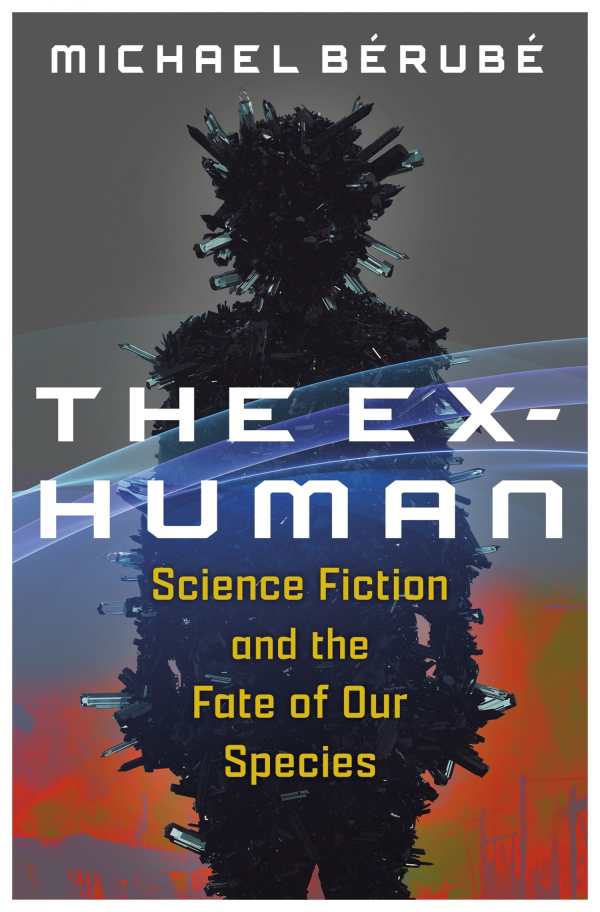The Ex-Human
Science Fiction and the Fate of Our Species
Literature professor Michael Bérubé’s The Ex-Human delves into science fiction works that envision postapocalyptic worlds and the possible extinction of the human race.
The book focuses on an intriguing range of authors, including Margaret Atwood, Octavia Butler, Liu Cixin, Philip K. Dick, and Ursula K. Le Guin. Among the primary topics is the current Anthropocene Epoch, in which increasing climate-related disasters, including drought, wildfires, and flooding, make the potential for planetary ruin seem more immediate than futuristic. There are nuclear threats alongside growing social discord and the threat of another pandemic. Adding to humanity’s general unease is the use of artificial intelligence and technological monitoring, predicted decades ago in science fiction literature.
In addition to the precarious state of humanity, science fiction is shown to concern itself with the concept of other life form takeovers, or even ultimate replacement. In Philip K. Dick’s “Do Androids Dream of Electric Sheep?” (adapted by the cult film classic Blade Runner), World War Terminus results in a “postnuclear dystopia,” and living among the remaining human populace are android or “replicant” beings, capable of violence and deception in order to survive. And Liu Cixin’s “The Three-Body Problem” features an astrophysicist who’s horrified by the “mass butchery” of China’s Cultural Revolution; she contacts an alien civilization with the desperate hope that it will improve life on Earth. Margaret Atwood’s “Oryx and Crake” contemplates whether an ex-human civilization would eliminate violence and slavery but at the seeming “cost of art, laughter, and intellectual curiosity.” Bérubé’s lively theories on these and other texts often incorporate notes on his interactions with students. His analyses are intensive yet fluid, variegated with a range of cultural, political, and personal references.
Spirited and speculative, The Ex-Human showcases science fiction for its formidable and prescient nature.
Reviewed by
Meg Nola
Disclosure: This article is not an endorsement, but a review. The publisher of this book provided free copies of the book to have their book reviewed by a professional reviewer. No fee was paid by the publisher for this review. Foreword Reviews only recommends books that we love. Foreword Magazine, Inc. is disclosing this in accordance with the Federal Trade Commission’s 16 CFR, Part 255.

